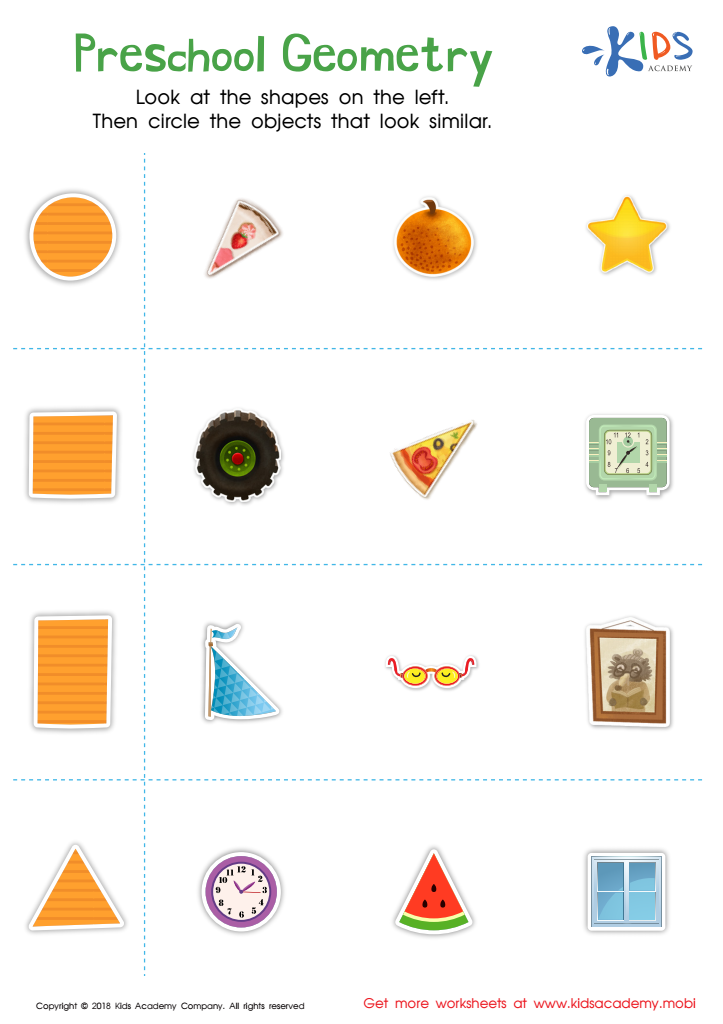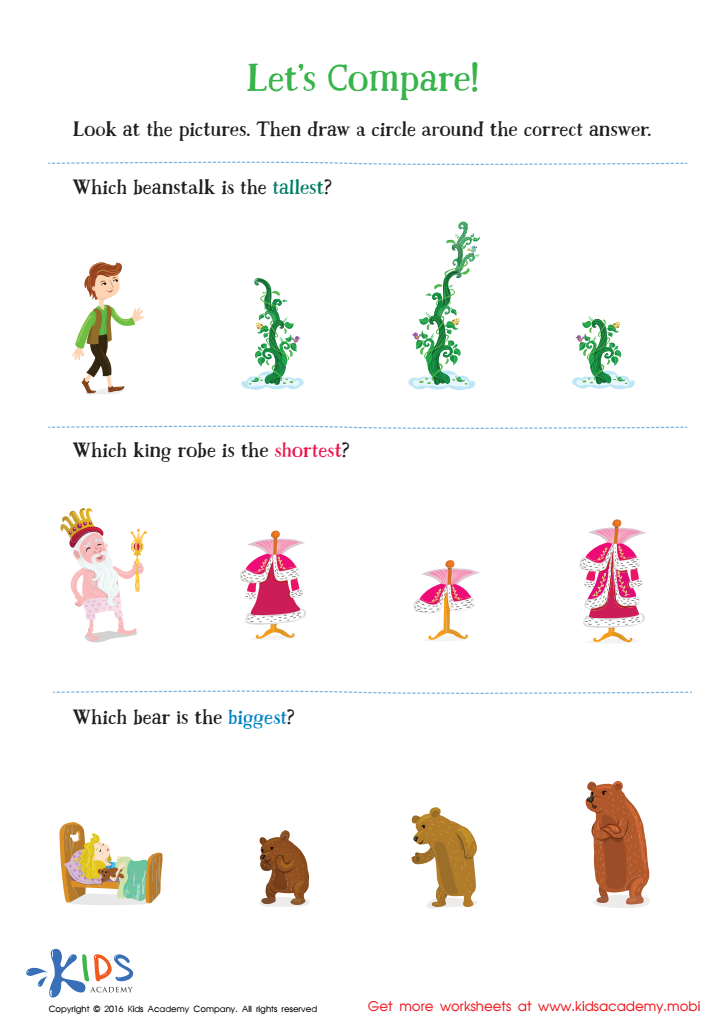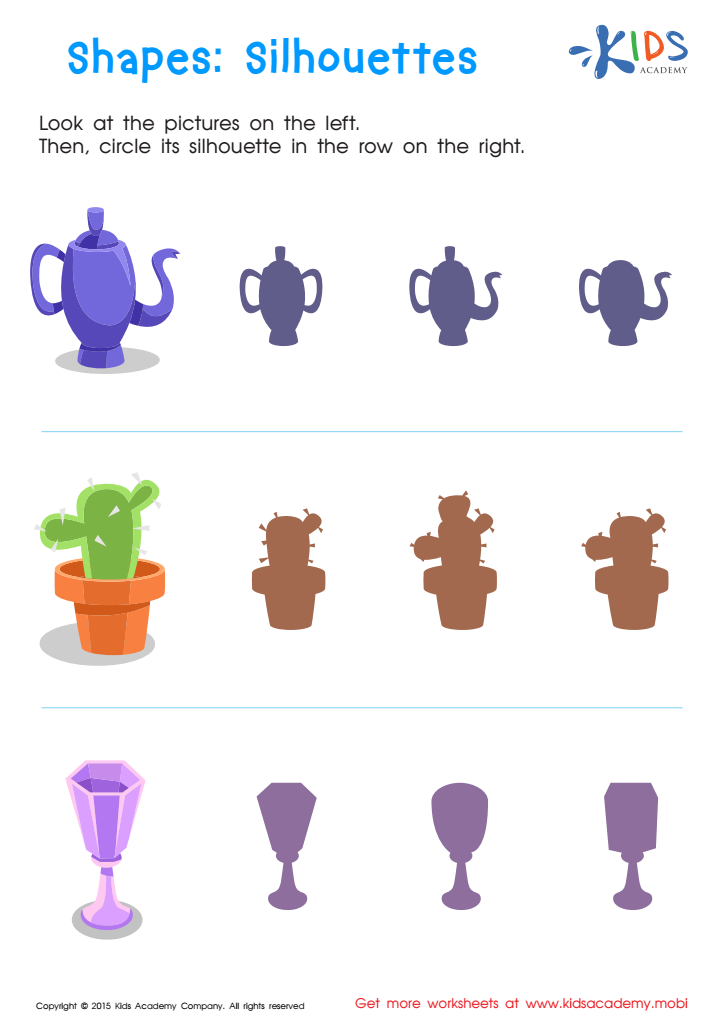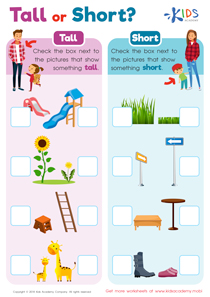Shape Recognition Preschool Comparison Worksheets
3 filtered results
-
From - To
Enhance your preschooler's understanding of shape recognition with our engaging Shape Recognition Preschool Comparison Worksheets! Designed for young learners, these worksheets provide fun activities that help children identify and compare various shapes. By using vibrant illustrations and interactive exercises, kids will develop essential cognitive skills while building their geometry knowledge. Our worksheets promote critical thinking as students learn to differentiate between shapes through comparisons, fostering a deeper understanding of their properties. Perfect for home or classroom use, our resources ensure an enjoyable learning experience that supports early math literacy. Get ready to spark your child’s creativity and shape awareness today!


Preschool Geometry Worksheet


Fairy Tale Worksheet: Let's Compare


Silhouettes – Shapes Worksheet
Shape recognition is a foundational skill that plays a vital role in a child's cognitive development and readiness for future learning. For parents and teachers, understanding a child's progression in shape recognition can provide valuable insights into their overall developmental milestones.
Firstly, shape recognition is closely linked to mathematical reasoning, paving the way for more complex concepts such as geometry and spatial awareness. When children can identify, compare, and categorize different shapes, they develop critical thinking skills necessary for problem-solving in mathematics.
Additionally, shape recognition is a vital aspect of language development. It encourages vocabulary expansion as children learn to name and describe shapes, enhancing their communication skills. This lays the groundwork for effective learning in reading and writing, as many letters and numbers have distinct shapes.
Moreover, teachers and parents can use shape comparison activities to engage children in hands-on learning experiences. These activities promote fine motor skills and encourage creativity through arts and crafts involving shapes.
By focusing on shape recognition, adults can support early childhood education, ensuring children develop a robust skill set that will benefit their academic journey and overall cognitive growth. Ultimately, recognizing and reinforcing this skill can set a solid foundation for lifelong learning.
 Assign to My Students
Assign to My Students

















